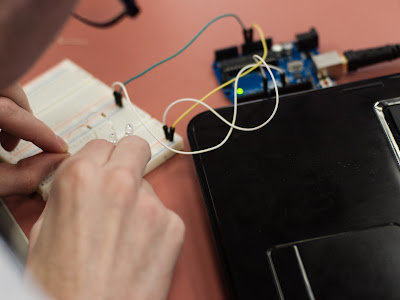John Seely Brown and Entrepreneurial Learning
I was reading an article this morning on the blog of Irving Wladawsky-Berger (which I highly recommend that you add to your feed reader) when I came across a couple of posts about John Seely Brown. Brown was chief scientist at Xerox for a number of years, and is now Independent Co-Chairman of Center for the Edge at Deloitte. The topic of the most recent post was Brown's paper "Cultivating the Entrepreneurial Learner in the 21st Century" . It's been a busy day, so look for a better summary this weekend.

